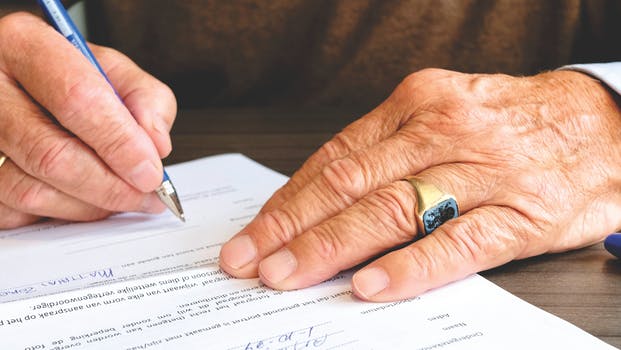
5 Top Tips For Writing Your Will
Of course it’s only natural that none of us want to think about our own deaths, however, it’s something that you should all be planning for. As well as thinking about a funeral plan to cover the costs and reduce the burden on family members, you should also be thinking about writing a will. After all, the more prepared you are, the more confident you can be that your debts, possessions and finances will be distributed just the way you want.
The best idea is always to consult an attorney. There are many pitfalls that can make a will invalid and leave room for others to dispute it, however if you’re ready to write your own will, you should follow this advice to ensure you avoid the common mistakes that could lead to your wishes not being carried out as you hope.
Understanding The Process
There are a number of key elements which are involved in writing a will, and learning the basics is important. Laws differ from state to state. You need to educate yourself about how your will can be made legal in your state as well as about what you should include and leave out. Being aware of the basics will mean that you won’t end up making a will that cannot be enforced.
Seeking Legal Advice
Although it is possible to write a will yourself either online or with a DIY kit that can be purchased in stores, it’s always sensible to seek out legal advice. A professional in the field will be able to ensure that you’ve properly interpreted the law, that everything that needs to be included has been and that the document is legally binding. Wills can be complicated and may require the wording to be precise and therefore working with a lawyer with experience in the wills and probate field is the best way to ensure the important document is properly drafted.
Selecting An Executor And Witnesses
It’s important to choose the right people to be your will’s witnesses and executor. Asking someone to settle your estate can take a lot of time and effort and can be be quite a burden, so you have to be certain that you’ve chosen someone trustworthy who can be relied upon to do the job properly. You may well want to consider appointing a back-up executor just in case your appointed person is unwilling or becomes unable to do the job or dies first.
Don’t Forget To Include The Small Things
While you won’t hesitate to include large assets such as your savings or your house in your will, you may forget to include sentimental items which could mean a lot to your loved ones. If you have any treasured ornaments or special jewellery, for example, you should specify in your will who should receive them so that there will be no fighting amongst your family members.
Let Your Family Know Where Your Will Is Located
It is only possible to follow the instructions that you have left in your will if somebody is able to find it after you’re gone. Therefore, telling your family or the executor where you have stored it will ensure that your wishes will be carried out.
One further thing to remember is that your will shouldn’t necessarily be something that you only make once and then leave in place until you die. Sometimes, circumstances change which mean that your beneficiaries may be different in the future. For example, a key family member may get married, have children or get divorced, and this could have an impact on who benefits from your estate.
Although planning for your death is never going to be a particularly cheerful activity for anyone, it is, nevertheless, an exceptionally important one. Leaving a will is vital for everyone, whatever their age and however little they have to distribute after their death.
